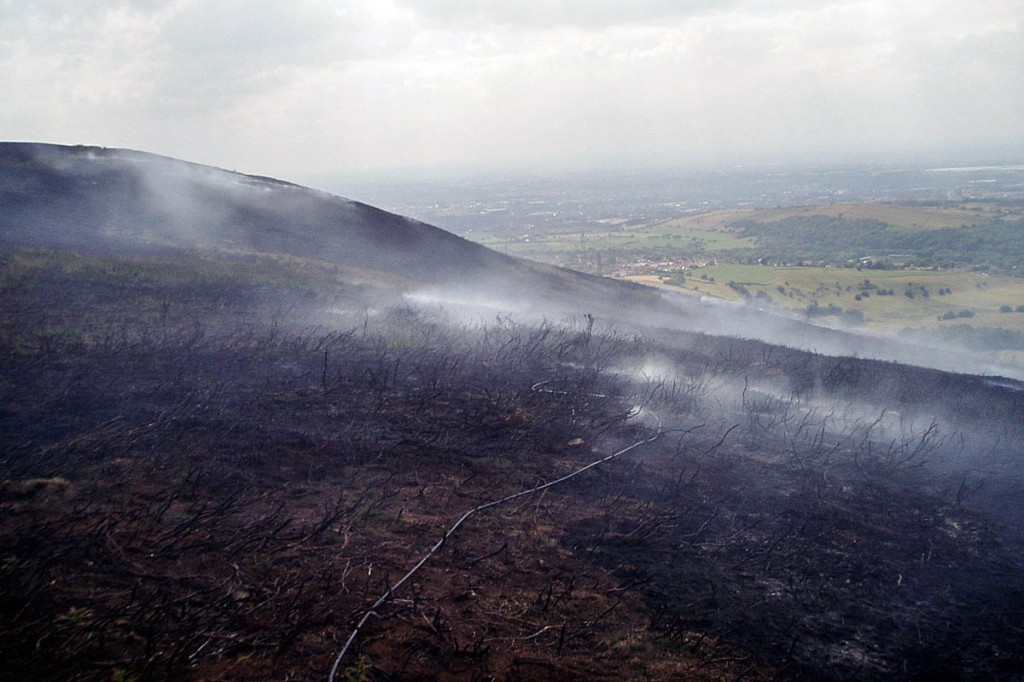The continued dry spell has increased the risk of wildfires on the Pennine moors, authorities warned.
Fires have already occurred on moorland above Littleborough and Todmorden in the South Pennines.
The South Pennines Fire Operations Group said such wildfires are a danger to human health and to wildlife and farm livestock.
Danny Jackson, FOG chairman, said: “Spring is a real danger period for moorland wildfires, which is why the partners working together through FOG, including firefighters and landowners, are asking members of the public to be extra vigilant when out in the countryside.
“The negative impact of wildfires across the moors is widely recognised, including the economic impact on farmers through the loss of grazing.
“The loss of habitat and the effect that these fires have on nesting birds, can also clearly be seen but in addition we want to highlight the hidden dangers: the pollution, the release of carbon into the atmosphere, and the impact on people’s health.
“Wildfire is the biggest single threat to our internationally rare blanket bog habitats that are the focus for the MoorLIFE 2020 programme funded through the EU LIFE programme and managed by the Moors for the Future Partnership.”
Between 1 October and 15 April some controlled burning by landowners takes place, but a fire started outside of these dates is a wildfire and any person caught starting one can be prosecuted for arson.
Dominic Furby, wildfire officer for the West Yorkshire Fire and Rescue Service, said: “Please be very careful when you are out on the moors. Dispose of any glass bottles and cigarettes in a responsible manner and remember to use your barbecue at home rather than on the moors.
“If you see a wildfire please report it through the 999 service giving its location as precisely as possible. And we would also ask people to report anyone acting suspiciously.
“Until recently moorland fires were seen as a low priority but now the uplands are recognised as being as valuable as bricks and mortar. If the peat burns it can be very difficult to extinguish and these fast-moving fires in off-road locations can be tiring for firefighting crews and resource intensive, which means that we may be stretched if fires occur elsewhere.”
Established by rural regeneration company Pennine Prospects, FOG brings together representatives from the three fire services of the area, Greater Manchester, Lancashire and West Yorkshire; the area’s water companies Yorkshire Water and United Utilities, as well as individual landowners; the six South Pennines local authorities and Natural England.
Chris Dean, head of programme delivery at the Moors for Future Partnership, said: “We are working with landowners, the utility companies and Natural England to restore blanket bog, reducing areas of bare peat and ensuring that these areas function retaining surface water, carbon and supplying clean water supplies through ecological restoration.
“Wildfire puts all this hard work and investment at risk.”
